Blanchet Ph.D. - Man at the Cross Road: The Gripping Tale of Christ’s Chief Executioner
Here you can read online Blanchet Ph.D. - Man at the Cross Road: The Gripping Tale of Christ’s Chief Executioner full text of the book (entire story) in english for free. Download pdf and epub, get meaning, cover and reviews about this ebook. year: 2016, publisher: Outskirts Press, Inc., genre: Detective and thriller. Description of the work, (preface) as well as reviews are available. Best literature library LitArk.com created for fans of good reading and offers a wide selection of genres:
Romance novel
Science fiction
Adventure
Detective
Science
History
Home and family
Prose
Art
Politics
Computer
Non-fiction
Religion
Business
Children
Humor
Choose a favorite category and find really read worthwhile books. Enjoy immersion in the world of imagination, feel the emotions of the characters or learn something new for yourself, make an fascinating discovery.
- Book:Man at the Cross Road: The Gripping Tale of Christ’s Chief Executioner
- Author:
- Publisher:Outskirts Press, Inc.
- Genre:
- Year:2016
- Rating:5 / 5
- Favourites:Add to favourites
- Your mark:
- 100
- 1
- 2
- 3
- 4
- 5
Man at the Cross Road: The Gripping Tale of Christ’s Chief Executioner: summary, description and annotation
We offer to read an annotation, description, summary or preface (depends on what the author of the book "Man at the Cross Road: The Gripping Tale of Christ’s Chief Executioner" wrote himself). If you haven't found the necessary information about the book — write in the comments, we will try to find it.
Blanchet Ph.D.: author's other books
Who wrote Man at the Cross Road: The Gripping Tale of Christ’s Chief Executioner? Find out the surname, the name of the author of the book and a list of all author's works by series.
Man at the Cross Road: The Gripping Tale of Christ’s Chief Executioner — read online for free the complete book (whole text) full work
Below is the text of the book, divided by pages. System saving the place of the last page read, allows you to conveniently read the book "Man at the Cross Road: The Gripping Tale of Christ’s Chief Executioner" online for free, without having to search again every time where you left off. Put a bookmark, and you can go to the page where you finished reading at any time.
Font size:
Interval:
Bookmark:

Scripture references are taken from the KJV Compact Quick Reference Large Print Bible, copyright 1996, Holman Bible Publishers, Nashville, Tennessee 37234.
This is a work of fiction. The events and characters described herein are imaginary and are not intended to refer to specific places or living persons. The opinions expressed in this manuscript are solely those of the author and do not represent the opinions or thoughts of the publisher. The author has represented and warranted full ownership and/or legal right to publish all the materials in this book.
Man At The Cross Road
The Gripping Tale of Christs Chief Executioner
All Rights Reserved.
Copyright 2016 Jeanne Blanchet, Ph.D
v3.0
Cover Photo 2016 thinkstockphotos.com . All rights reserved - used with permission.
This book may not be reproduced, transmitted, or stored in whole or in part by any means, including graphic, electronic, or mechanical without the express written consent of the publisher except in the case of brief quotations embodied in critical articles and reviews.
Outskirts Press, Inc.
http://www.outskirtspress.com
Outskirts Press and the OP logo are trademarks belonging to Outskirts Press, Inc.
PRINTED IN THE UNITED STATES OF AMERICA
This novel is dedicated in loving memory
to my parents, Bill and Barbara Maxant;
husband, Bill Blanchet;
and special friend, Ralph Kropen.
TABLE OF CONTENTS
F OREWORD
Jeanne Blanchet, in her novel Man at the Cross Road, gives us a look at man at his worst in the character of Marcus Casca. Through many twists and turns we learn of the other side of humanity as we look at those who are part of a group that are followers of the Way. This novel is for both those who know a great deal about the Bible and those who know nothing or very little of the Bible. Jeanne Blanchet through her writing gives us a wonderful history and background of the religious and non-religious world during and just after the time of Jesus. The struggles of that time are still the same struggles of today, focusing on mankinds ability to accept the free grace that God offers. Marcus thought it was too good to be true, especially being the scoundrel that he was. The question is: What will you think about this free gift of saving grace after reading this book?
Reverend Louis Lyon,
United Methodist Church, Sun City, AZ, retired
There are men who seize lifes opportunities with enthusiasm and purpose, sincerely striving to make this world a better place for themselves and others. There are a few, however, who, lacking even the most basic decency, lurk in the shadows of depravity, on the brink of losing their sanity altogether and plunging into the great abyss of profound dissoluteness, from which only one hope remains:
For God so loved the world that he gave his only begotten Son, that whosoever believeth in him should not perish, but have everlasting life. John 3:16A UTHOR S N OTES
This is a novel. While Emperors Tiberius, Caligula, Claudius and Nero; Saints Peter, Paul, Clement, Anacletus and Linus; Aquila, Priscilla and Jesus of Nazareth truly existed, the principal characters are fictitious. Any resemblance to actual persons living or deceased is purely coincidental.
With annotated exceptions, the author has attempted to follow historical events faithfully and, after having conducted extensive research, has tried to present as objective a picture as possible of Romes early Christian communities. However, historians accounts differ, often radically. This story simply presents one plausible scenario of how and when key events may have transpired. (The author admits to having taken occasional artistic liberties, however, particularly with respect to the last [catacombs] chapter.)
With religion being a highly sensitive subject and Jews, Catholics, Orthodox believers and Protestants (not to mention all their sub-denominations) each espousing unique interpretations of early church history, it is extremely likely that the author will unintentionally disappoint, and perhaps even antagonize, some of her readers. For this she apologizes in advance.
Modern biblical scholars vehemently disagree on precisely when, how and why many salient events in Christianitys early period took place. Even assigning accurate dates to Jesus birth and crucifixion is akin to attempting to extract the teeth from a fossilized Tyrannosaurus rex jawbone. Authorship of crucial letters and texts is still a subject of intense debate as are events associated with specific individuals. For example, scholars have yet to reach a consensus on whether Saint Linus or Saint Clement of Rome became the second Bishop of Rome (Pope). (The word Pope, incidentally, derives from the Latin papa , one of the Romans words for father. Its earliest formal use in reference to a Bishop of Rome was to Pope Marcellinus in the late third century CE.)
Proper identification of personages can be baffling as well, especially since men of that era were typically known by two or more names. (For example, the apostle Thomas was also called Didymus, meaning twin.) The identity of Saint James, the half-brother (cousin?) of Jesus, is even more confusing. Saint Jerome maintains he was the apostle James, the Younger, while other theologians/historians insist the two were not one and the same and that this James was not among the original twelve disciples at all, even though he later became a pillar of the church in Jerusalem. Doubtless, some of the confusion results from the fact there were several prominent individuals intimately associated with Jesus who were named James, including James, the Elder, who was among the first of the apostles to be martyred. Whether Jesus brother James was his cousin, half-, or blood brother further compounds the problem.
And just who founded the Christian church in Rome? According to tradition, Peter and Paul have been credited with doing so. But several alternate scenarios cannot be ruled out, including the possibility that some Roman Jews who had been in Jerusalem shortly after Jesus death and had been converted after hearing Peters Pentecost sermon brought the faith back to the capital with them. Even today this question is a topic of intense debate.
The precise manner in which Christians worshipped in the years of the religions infancy is also hotly contested. Services, even in the Roman church, were not yet called masses. (That word originates from the exhortation that in time came to be reiterated at the conclusion of every service: Ite, missa est Christs Great Commission sending disciples, the Church, out into the world to spread his teachings.)
Very early believers doubtless conducted services in a variety of waysnot a few patterned after Jewish liturgies and traditions since many of them had been converted from that faith. Aramaic was beyond a doubt the language of the very first Way communities in Palestine. But Greek, being the most widely spoken tongue in the Roman Empireespecially among those Jews living in Asia Minorquickly supplanted it once the Jesus Movement began to spread outside of Judea. Many traditional ecclesiastical prayers, such as the kyrie eleison , for example, were Greek and still today are incorporated in numerous Christian observances.
Interestingly, while the author has implied in this novel that worship services were conducted in Latin during the early years of the Roman church, this is by no means an established fact. Sermons, of course, would have been delivered in the vernacular (in this case Latin). However, not a few contemporary scholars believe the liturgical language even of the Roman church was Greek (the language in which St. Paul wrote to the Romans and to other Christian communities in the empire) for at least the first two centuries of its existence.
Next pageFont size:
Interval:
Bookmark:
Similar books «Man at the Cross Road: The Gripping Tale of Christ’s Chief Executioner»
Look at similar books to Man at the Cross Road: The Gripping Tale of Christ’s Chief Executioner. We have selected literature similar in name and meaning in the hope of providing readers with more options to find new, interesting, not yet read works.
Discussion, reviews of the book Man at the Cross Road: The Gripping Tale of Christ’s Chief Executioner and just readers' own opinions. Leave your comments, write what you think about the work, its meaning or the main characters. Specify what exactly you liked and what you didn't like, and why you think so.

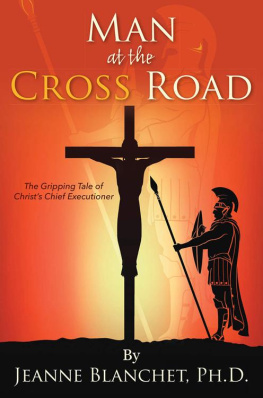
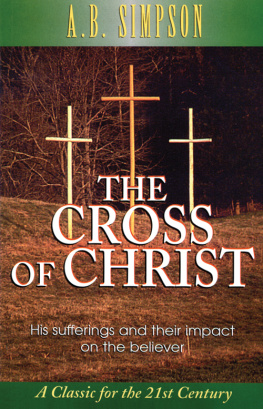


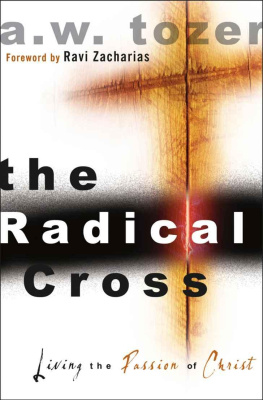
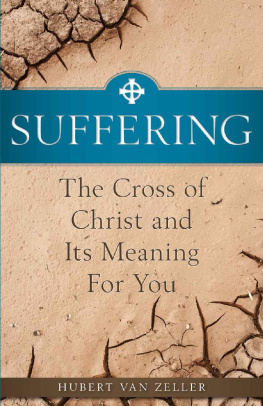


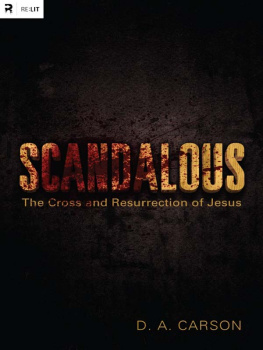
![J. C. Ryle - The Cross [Annotated, Updated]: Crucified with Christ, and Christ Alive in Me](/uploads/posts/book/150302/thumbs/j-c-ryle-the-cross-annotated-updated.jpg)
